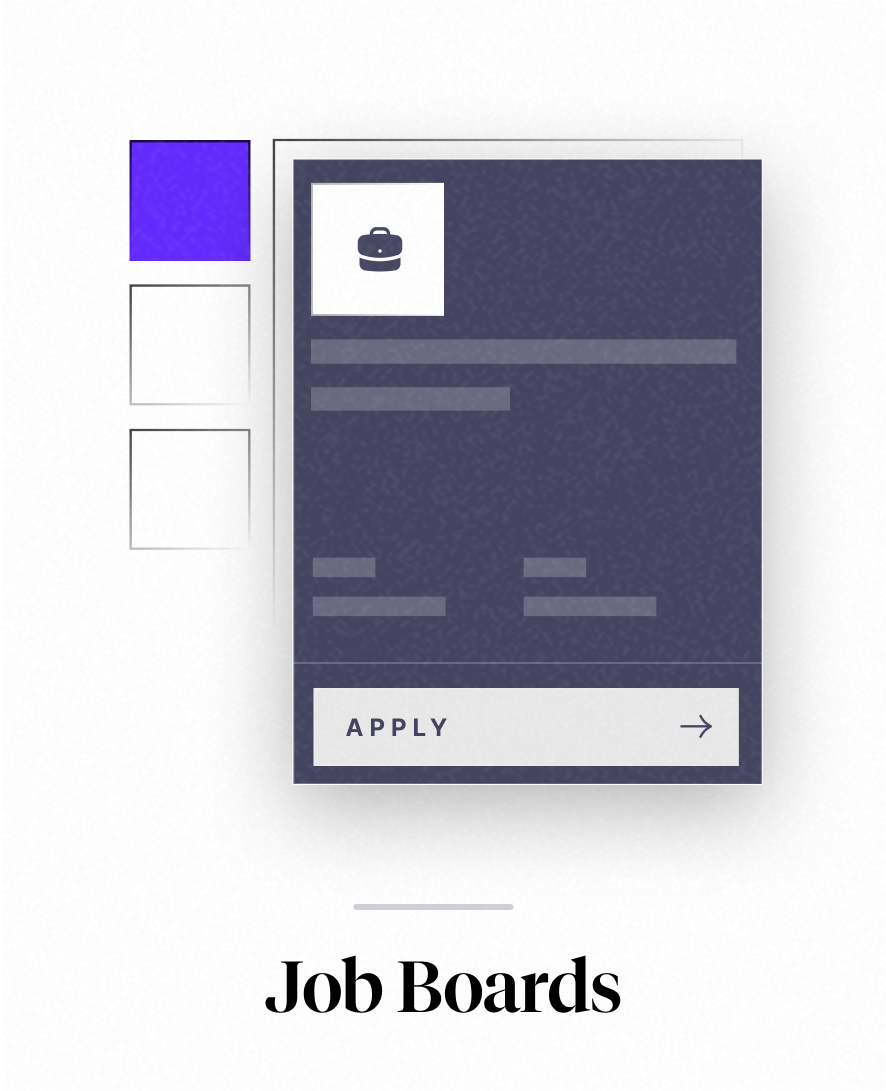Acquisition project | Dezy It
| ICP 1 | ICP 2 | ICP 3 |
|---|---|---|---|
Ideal Customer Profile Name | A | B | C |
Age | 25-40 | 20-35 | 20-35 |
Organisation Goals | Improve business relationships | Product Planning | Improve Social Media Reach |
Companies | Salse/Marketing Agencies | Design Agencies | Social Media Marketing Agency |
Products used in workplace | CRM (Salesforse. zoho, hubspot) | Figma, Adobe XD, Invision | Hubspot, Marketo, Active Campaign |
Role in buying process | | ||
Where they spend time | Analysing User Data | Cross Functional Team Communication | Planning the campaigns |
Pain Points | | | |
Product Integrations : Ways Of Integrations
Type | Application PlugIn | Loading The Entire WebApp | Open APIs & Websockets |
|---|---|---|---|
Difficulty of integration | Medium | Easy | High |
Required time to implement | 1 Month - 3 Months | 1 Day | |
1. Salesforse CRM (Overwhelming to understand)
Similar Tools
CRM Platforms:
- Salesforce
- HubSpot CRM
- Zoho CRM
- Microsoft Dynamics 365
User Persona Development:
- A marketing team uses the growth sprint application to create detailed user personas based on data collected from Salesforce. Integration with Salesforce allows the team to access customer demographics, behaviors, and preferences directly within the growth sprint application, enhancing the accuracy and relevance of the personas.
Journey Mapping:- The product development team collaborates with the marketing and sales teams to map out customer journeys using the growth sprint application. By integrating with Salesforce, the team can incorporate real-time customer interactions, touchpoints, and feedback from Salesforce into the journey maps, providing a comprehensive view of the customer experience.
- The product development team collaborates with the marketing and sales teams to map out customer journeys using the growth sprint application. By integrating with Salesforce, the team can incorporate real-time customer interactions, touchpoints, and feedback from Salesforce into the journey maps, providing a comprehensive view of the customer experience.
Ideation and Ideas Voting:- The cross-functional team generates and evaluates growth ideas within the growth sprint application. Integration with Salesforce enables the team to assess the impact of each idea on key business metrics, such as customer acquisition cost and lifetime value, by analyzing Salesforce data related to leads, opportunities, and conversions.
- The cross-functional team generates and evaluates growth ideas within the growth sprint application. Integration with Salesforce enables the team to assess the impact of each idea on key business metrics, such as customer acquisition cost and lifetime value, by analyzing Salesforce data related to leads, opportunities, and conversions.
User Testing:
- The user experience (UX) team conducts usability testing with actual customers using prototypes developed in the growth sprint application. Integration with Salesforce enables the team to recruit participants based on criteria stored in Salesforce, such as customer segments or engagement levels, and capture test results directly within Salesforce for analysis
Benefits:
- Enhanced accuracy and relevance of user personas and journey maps.
- Data-driven ideation and decision-making based on Salesforce insights.
- Streamlined user testing and feedback collection.
- Continuous improvement and optimization of customer experiences.
https://www.salesforce.com/form/conf/overview-demo/
2. Integration with Figma (Decision Making Helper)
Similar tools -
Design and Prototyping Tools:
- Adobe XD
- Sketch
- InVision
- User Persona Development:
- Users create and visualize user personas within your growth sprint application, identifying key demographics, behaviors, and pain points.
- Journey Maps and Pain Points:
- Based on the user personas, users create journey maps and identify pain points experienced by their target audience throughout their interactions with the product or service.
- Ideation and Idea Voting:
- Users brainstorm ideas to address identified pain points and opportunities for improvement. They submit these ideas within your growth sprint application, where team members can vote on them to prioritize.
- Integration with Figma:
- High-priority ideas approved through the voting process are selected for further design exploration. Users seamlessly create corresponding design files or projects in Figma directly from your growth sprint application.
- Prototyping and User Testing:
- Design teams use Figma's collaborative features to create interactive prototypes of proposed solutions, incorporating feedback from stakeholders and users gathered through your growth sprint application.
- Integration with User Testing Platforms:
- Once prototypes are ready, they are linked with user testing platforms integrated with Figma, allowing teams to conduct usability testing and gather feedback from real users.
- Reiteration and Refinement:
- Based on user feedback and test results, design teams iterate on the prototypes, refining the solutions and incorporating improvements directly within Figma.
- Handoff to Development:
- Once the final designs are approved, developers can access design specifications, assets, and interactions directly within Figma, streamlining the handoff process and ensuring consistency between design and development.
Benefits of Integration:
- Enhanced Collaboration: Figma's collaborative features facilitate seamless collaboration among designers, product managers, and other stakeholders, ensuring alignment and transparency throughout the design process.
- Iterative Improvement: Integration with user testing platforms allows teams to gather feedback early and iterate on designs iteratively, ensuring that final solutions meet user needs and expectations.
3. Integration with Hootsuite (For growth objectives)
Background: Hootsuite is a social media management platform that allows businesses to manage and schedule content across multiple social media channels from a single dashboard. Integrating your growth sprint application with Hootsuite can help users leverage social media as part of their growth strategies, ensuring consistency and effectiveness in their social media efforts.
Similar Tools
Social Media Management Platforms:
- Hootsuite
- Buffer
- Sprout Social
- Socialbakers
Use Case Scenario:
- User Persona Development:
- Users create user personas within your growth sprint application, identifying key demographics, interests, and behaviors of their target audience across various social media platforms.
- Journey Maps and Pain Points:
- Users map out the customer journey on social media, identifying pain points, challenges, and opportunities for engagement and conversion.
- Ideation and Idea Voting:
- Users brainstorm ideas for social media content, campaigns, and engagement strategies within your growth sprint application. They submit these ideas for review and voting by team members.
- Integration with Hootsuite:
- High-priority social media ideas approved through the voting process are selected for implementation and scheduled for publishing directly within Hootsuite from your growth sprint application.
- Content Creation and Scheduling:
- Content creators use Hootsuite's content creation tools to develop engaging social media posts, graphics, and videos based on the approved ideas. They schedule these posts to be published at optimal times across relevant social media channels.
- Monitoring and Engagement:
- Social media managers use Hootsuite's monitoring and listening features to track brand mentions, conversations, and engagement metrics in real time. They respond to comments, messages, and mentions promptly to foster community engagement and address customer inquiries.
- Analytics and Reporting:
- After social media posts are published, users track their performance and impact using Hootsuite's analytics and reporting tools. They analyze key metrics such as reach, engagement, clicks, and conversions to evaluate the effectiveness of their social media initiatives.
- Iterative Optimization:
- Based on the insights gathered from Hootsuite analytics, users iterate on their social media strategies, optimizing content, timing, and targeting to improve performance and achieve their growth objectives.
Benefits of Integration:
Efficient Social Media Management: Integration with Hootsuite streamlines the process of planning, creating, scheduling, and monitoring social media content and campaigns, saving time and effort for users.
Product Name | Frequency of Interaction | Importance of these interactions | Can your product add value to these interactions | Potential to get customers/new use cases? |
|---|---|---|---|---|
Brand focused courses
Great brands aren't built on clicks. They're built on trust. Craft narratives that resonate, campaigns that stand out, and brands that last.
All courses
Master every lever of growth — from acquisition to retention, data to events. Pick a course, go deep, and apply it to your business right away.
Explore courses by GrowthX
Built by Leaders From Amazon, CRED, Zepto, Hindustan Unilever, Flipkart, paytm & more
Course
Advanced Growth Strategy
Core principles to distribution, user onboarding, retention & monetisation.
58 modules
21 hours
Course
Go to Market
Learn to implement lean, balanced & all out GTM strategies while getting stakeholder buy-in.
17 modules
1 hour
Course
Brand Led Growth
Design your brand wedge & implement it across every customer touchpoint.
15 modules
2 hours
Course
Event Led Growth
Design an end to end strategy to create events that drive revenue growth.
48 modules
1 hour
Course
Growth Model Design
Learn how to break down your North Star metric into actionable input levers and prioritise them.
9 modules
1 hour
Course
Building Growth Teams
Learn how to design your team blueprint, attract, hire & retain great talent
24 modules
1 hour
Course
Data Led Growth
Learn the science of RCA & experimentation design to drive real revenue impact.
12 modules
2 hours
Course
Email marketing
Learn how to set up email as a channel and build the 0 → 1 strategy for email marketing
12 modules
1 hour
Course
Partnership Led Growth
Design product integrations & channel partnerships to drive revenue impact.
27 modules
1 hour
Course
Tech for Growth
Learn to ship better products with engineering & take informed trade-offs.
14 modules
2 hours
Crack a new job or a promotion with ELEVATE
Designed for mid-senior & leadership roles across growth, product, marketing, strategy & business
Learning Resources
Browse 500+ case studies, articles & resources the learning resources that you won't find on the internet.
Patience—you’re about to be impressed.























